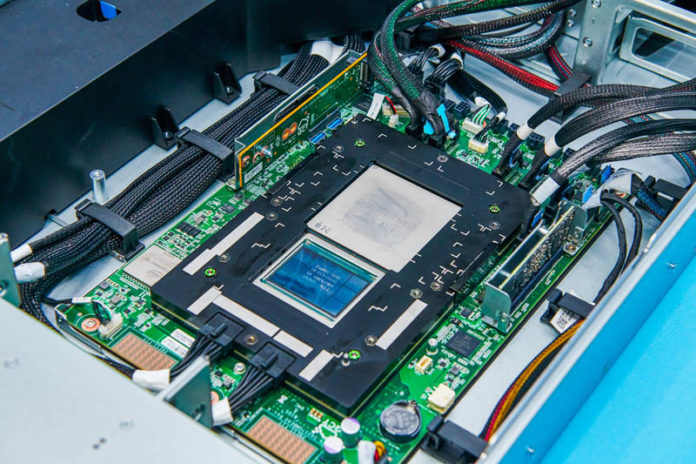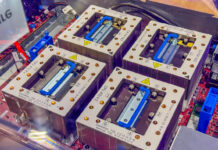At Computex 2023, we saw a NVIDIA Grace Hopper system that was notable because it was a NVIDIA MGX server. This QCT QuantaGrid S74G-2U is the system that was shown by Jensen during NVIDIA’s keynote at the show. It is also one that many traditional server buyers will find jarring as it lacks an x86 or even a separate Arm CPU and instead is based around a giant NVIDIA Grace Hopper module.
NVIDIA Grace Hopper MGX Platform QCT QuantaGrid S74G-2U at Computex 2023
Perhaps the thing that makes this server so unique is that it uses the NVIDIA Grace Hopper. This is a module with a NVIDIA H100 GPU with HBM (left in the photo below) as well as the NVIDIA Grace 72 core Arm CPU (right in the photo below) with LPDDR memory.
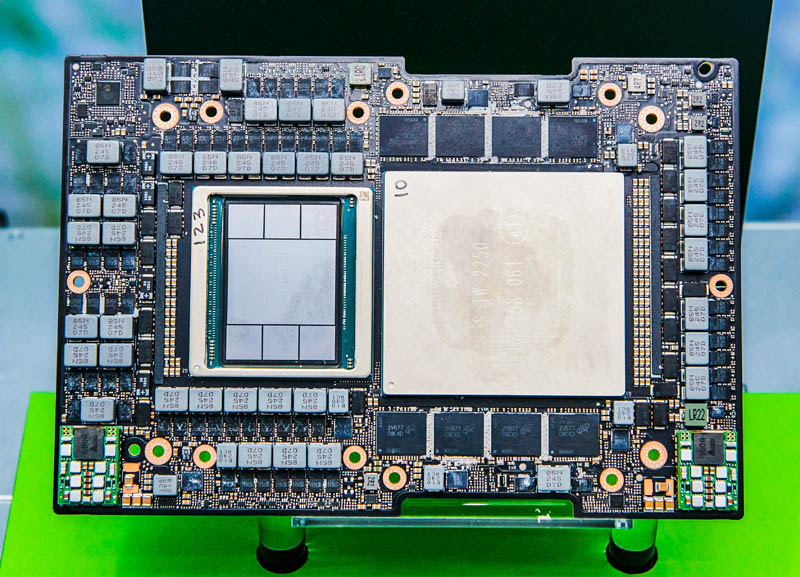
Since this is not a traditional form factor for CPU and GPUs, NVIDIA launched its MGX platform initiative. This is a platform that allows many different types of configurations. The QCT QuantaGrid S74G-2U is based on NVIDIA MGX and is designed to house this new module.
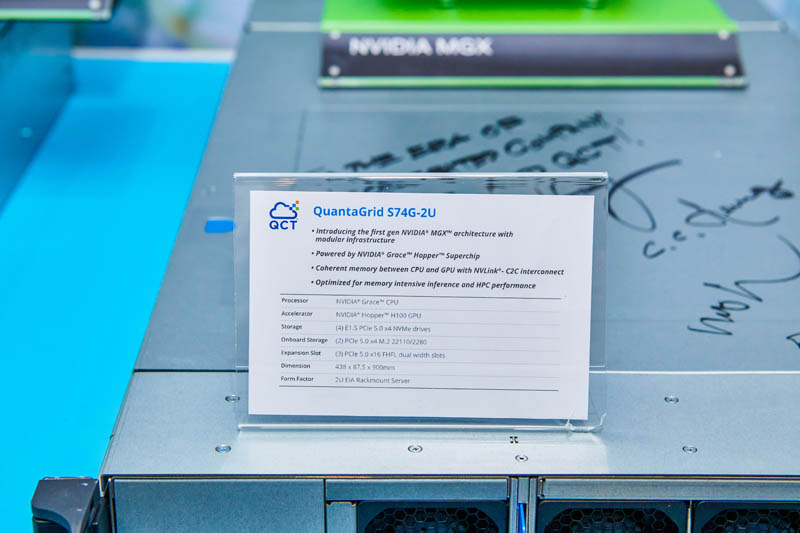
Key specs include four E1.S PCIe Gen5 x4 drives. There are also spots for two PCIe Gen4 x4 M.2 SSDs and three PCIe Gen5 x16 full height full-length dual-width cards. One can see that aside from the four E1.S storage bays, most of the front of the chassis is dedicated to cooling.
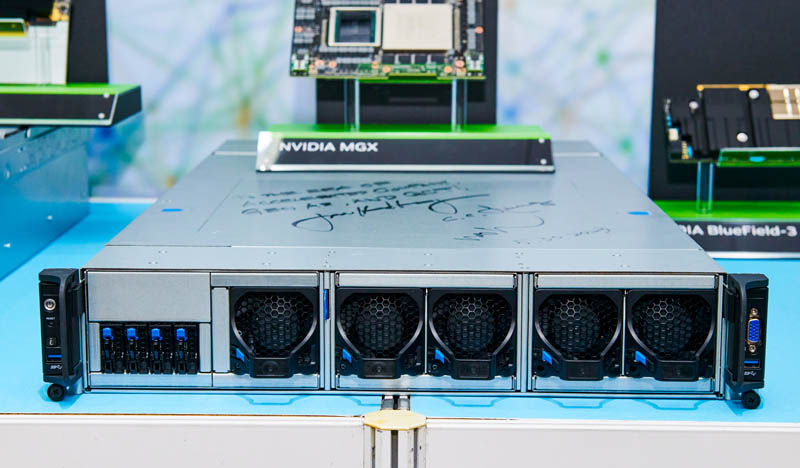
That cooling is focused around the NVIDIA Grace Hopper module.
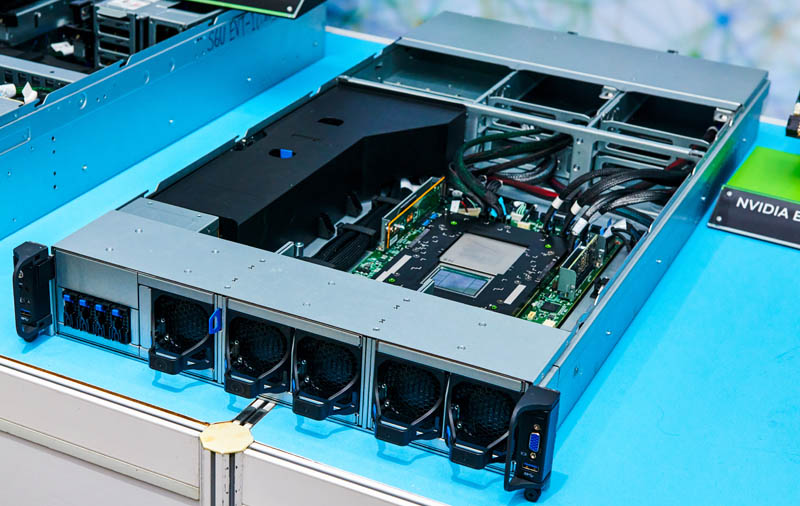
Here is a look at the fan modules in front of the NVIDIA GPU and CPU. There normally would be a large heatsink on the top of this module, but that was not shown at the show.
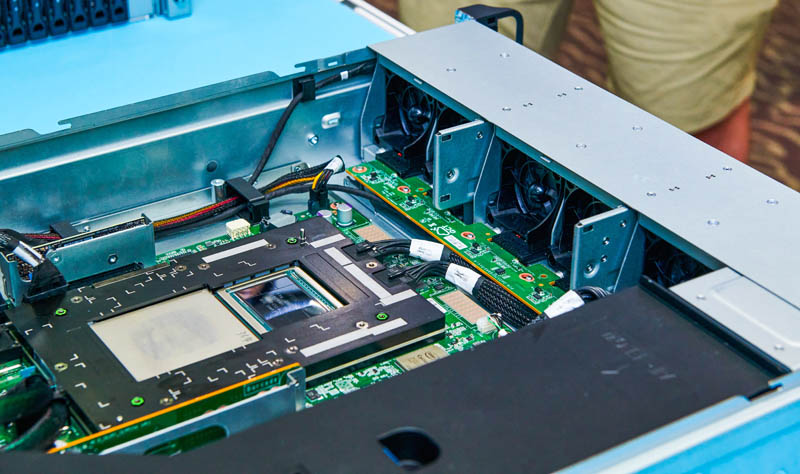
Something interesting about the module is that we saw what appeared to be cabled power. This was a difference between the mock-up display modules that we have seen (shown in a stand above) and the modules we saw installed in many servers like this one from QCT.
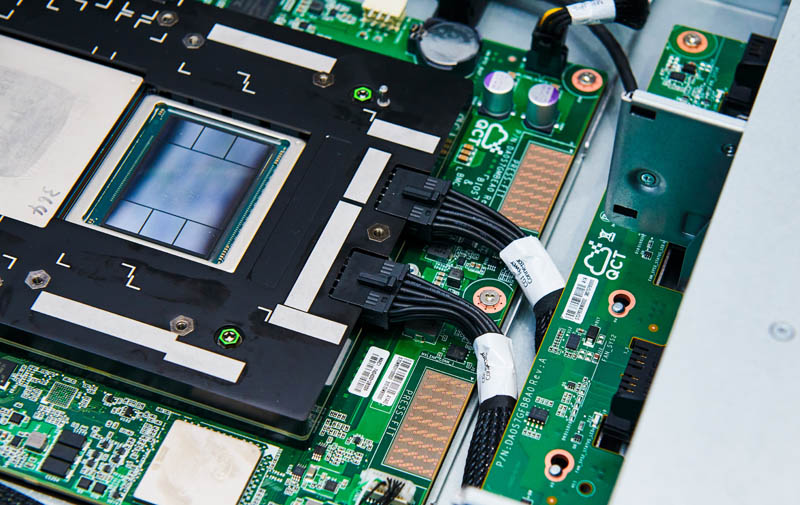
The chip at the bottom of the picture is an Intel Cyclone 10.
The Grace Hopper module sits atop a very modern motherboard. There are no standard PCIe riser slots. Instead, we get a lot of cables. The main riser shown above the two USB Type-A ports above is a M.2 SSD riser slot.
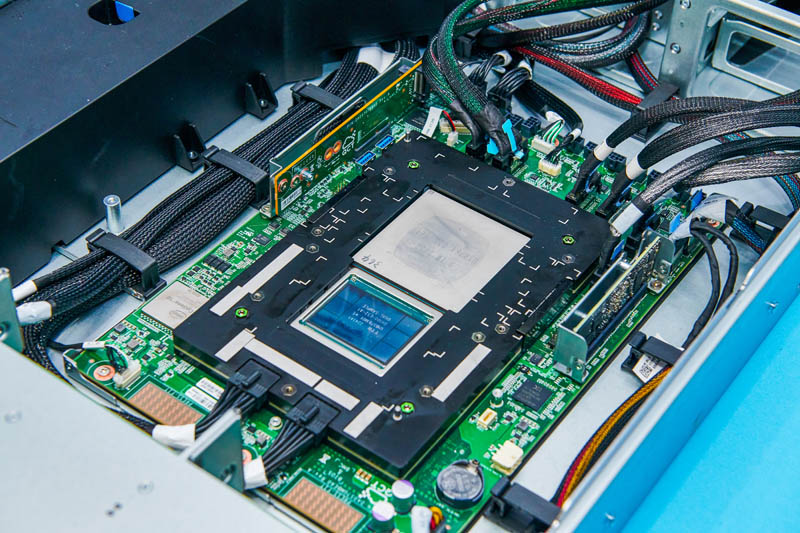
That means that to provide PCIe connectivity to the server, we need to have PCIe cables and lots of them.
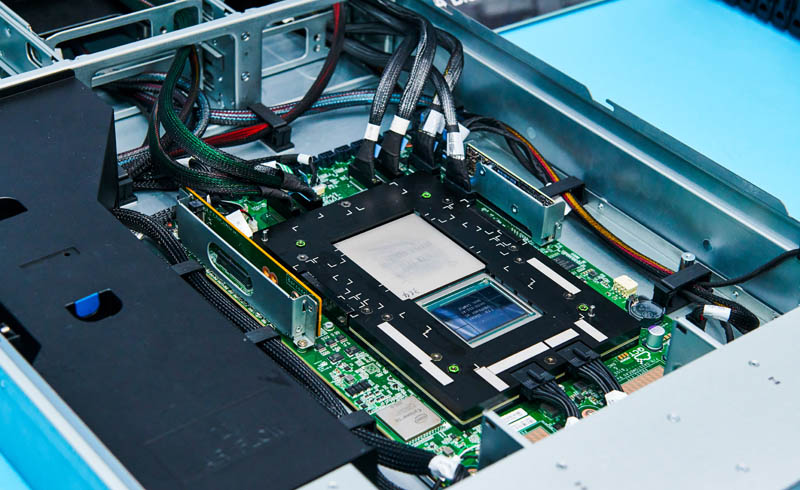
At the rear of the mainboard, we can see what looks like MCIO connectors to carry the PCIe Gen5 lanes to the rear PCIe Gen5 x16 slots.
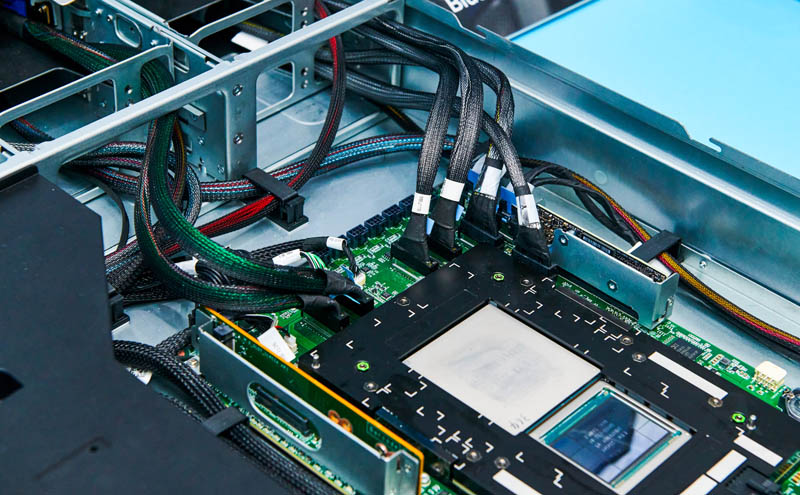
Here is a closer view of those.
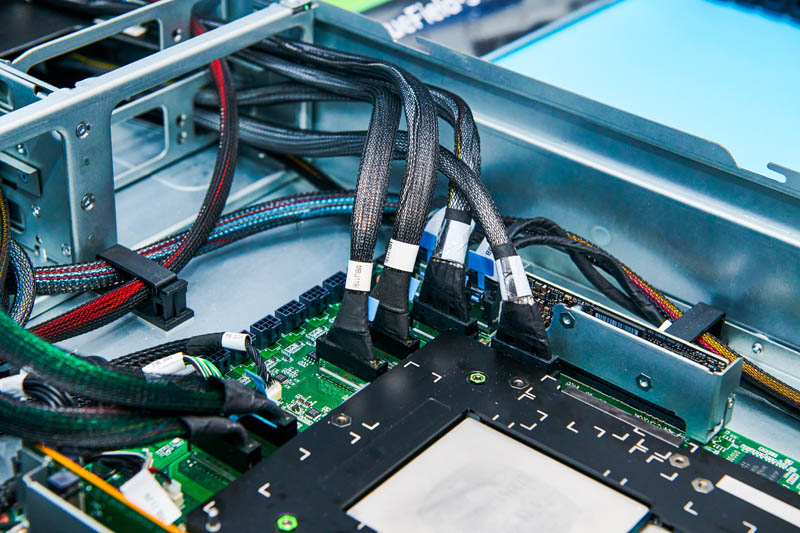
As we can see, these risers sit well behind the Grace Hopper and baseboard.
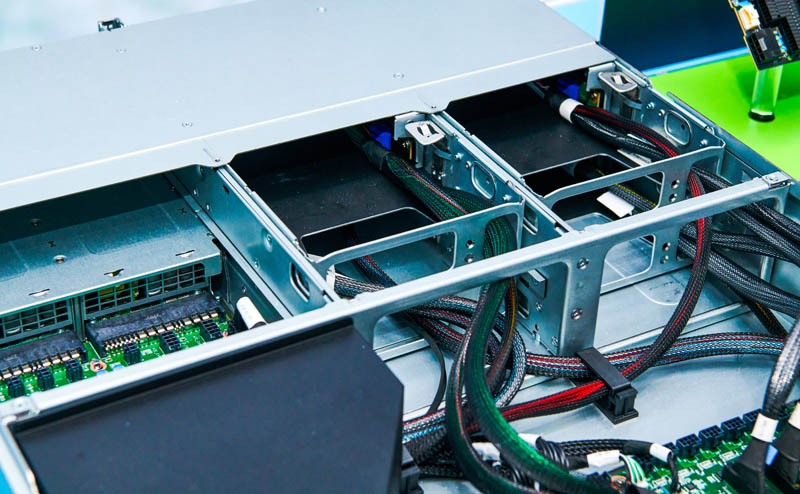
Something else that we immediately saw was the power distribution board. This is the board that mates to the redundant power supplies and distributes power to all of the components of the system.
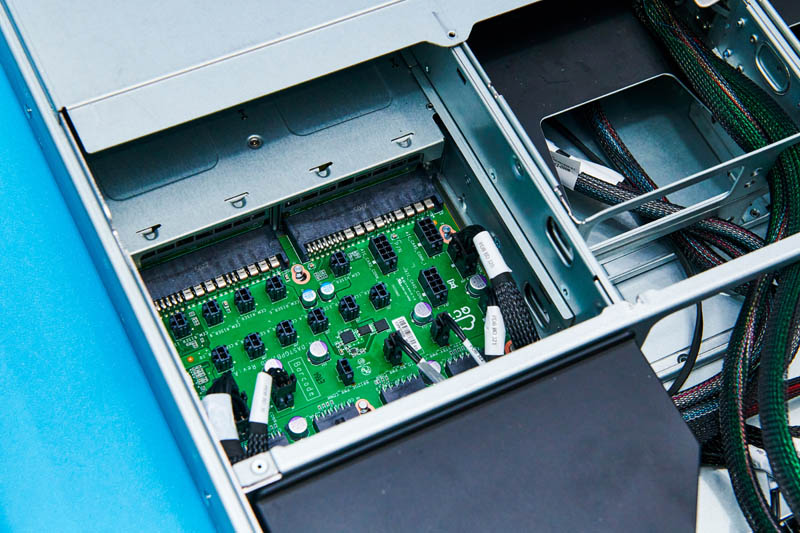
Seeing the MGX server built around the NVIDIA Grace Hopper, we know that it is designed for higher-power applications. This particular server had a lot of room to route and tie down cables. In many standard servers, routing PCIe cables is a challenge due to the CPU and DIMM slots. Here, there is no issue because the chips have on-module memory.
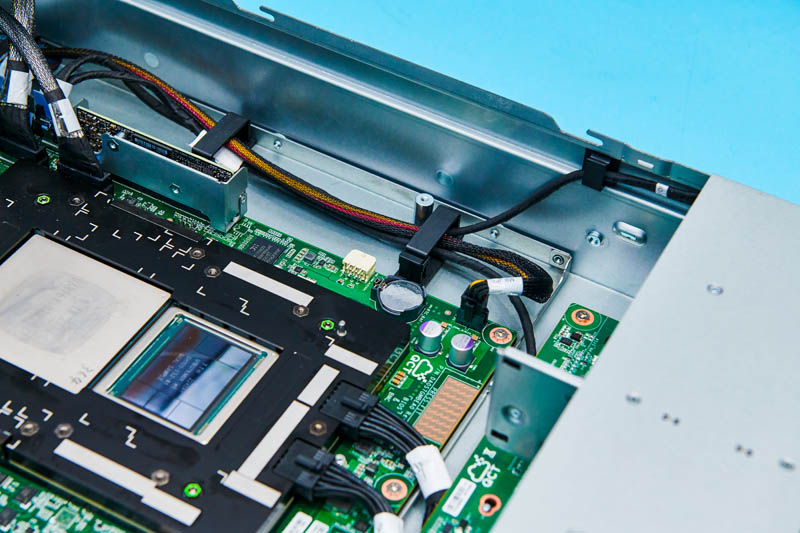
While some have noted that it was a long time between announcement and release, the small cables around the motherboard should remind everyone that it is not just the CPU and GPU that need to work. To make a server requires BIOS, firmware, and integration with various other features, down to fan speed, and blinking lights. There is a lot of engineering involved in bringing up new platforms. These little cables and the various FPGAs/ CPLDs and other bits around the system show just how much goes into new systems like these.
Final Words
In the end, it was great to see the QCT QuantaGrid S74G-2U because it represented both a NVIDIA MGX platform, but also because it had a NVIDIA Grace Hopper onboard.
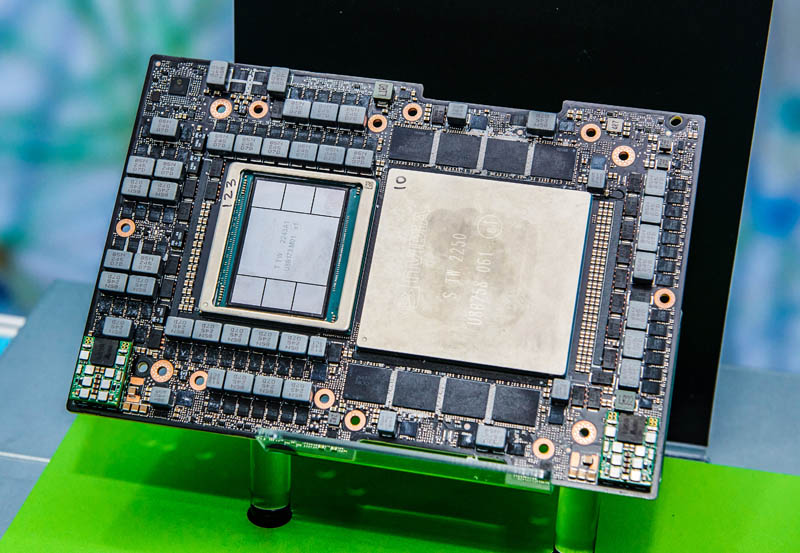
One fun part of this is that NVIDIA’s CEO signed this system “To the era of accelerated company, gen AI, and QCT.”
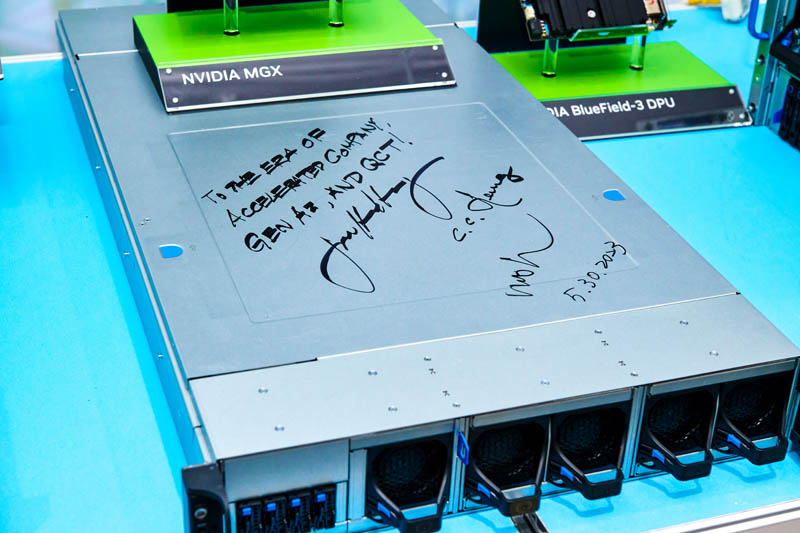
Hopefully, we will get to bring you more on these systems over the coming months.

